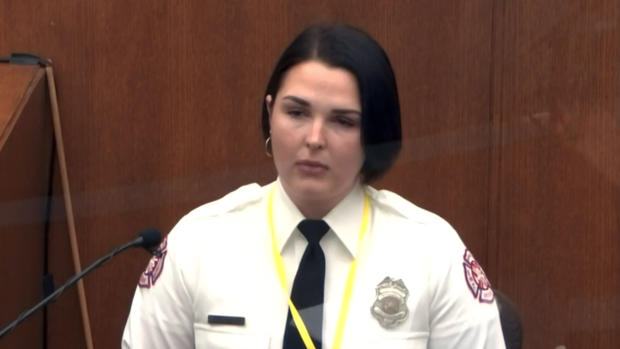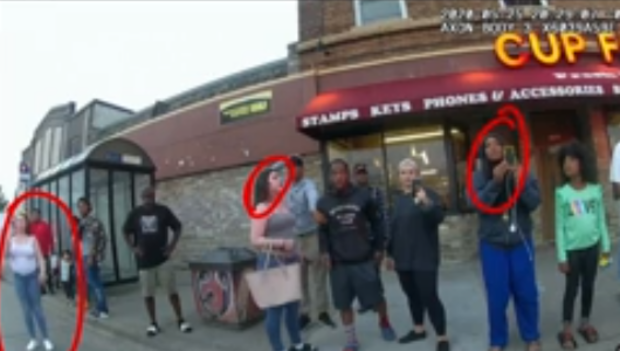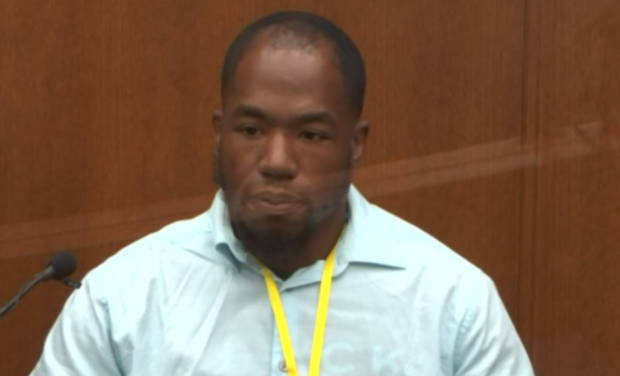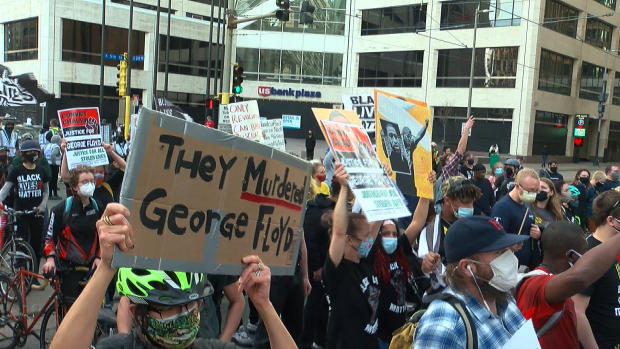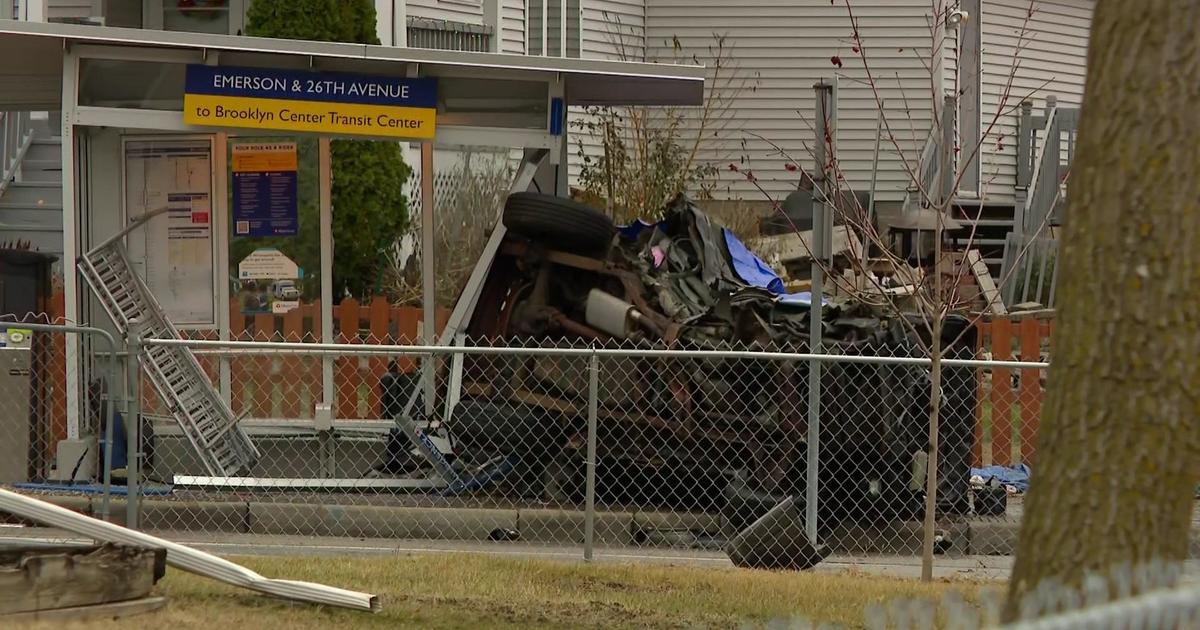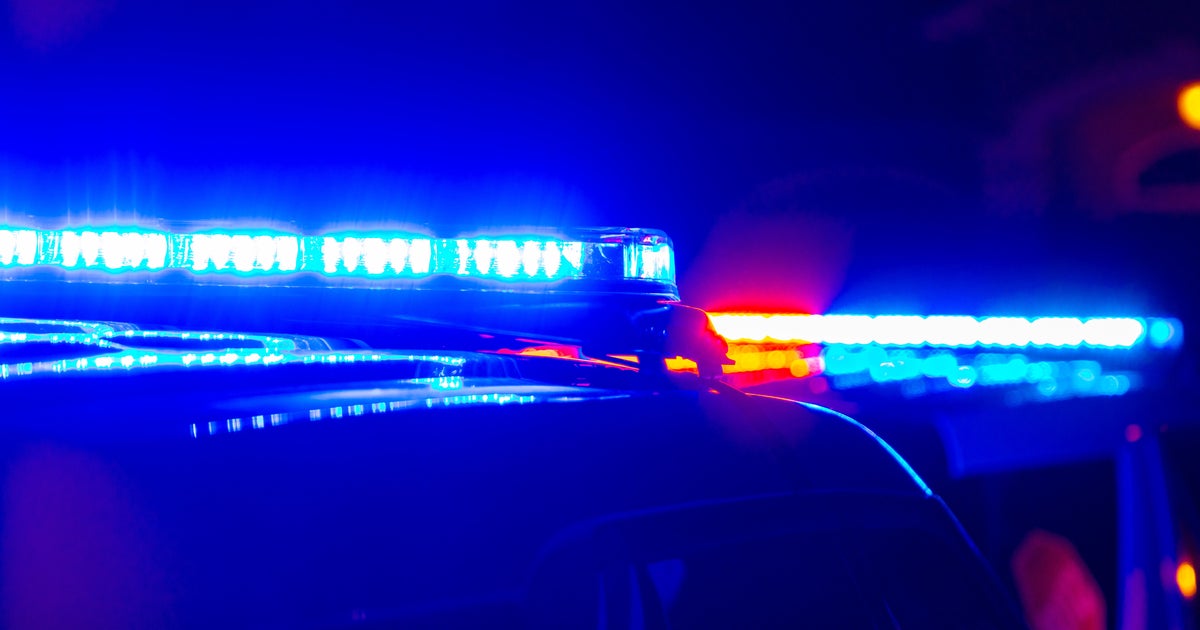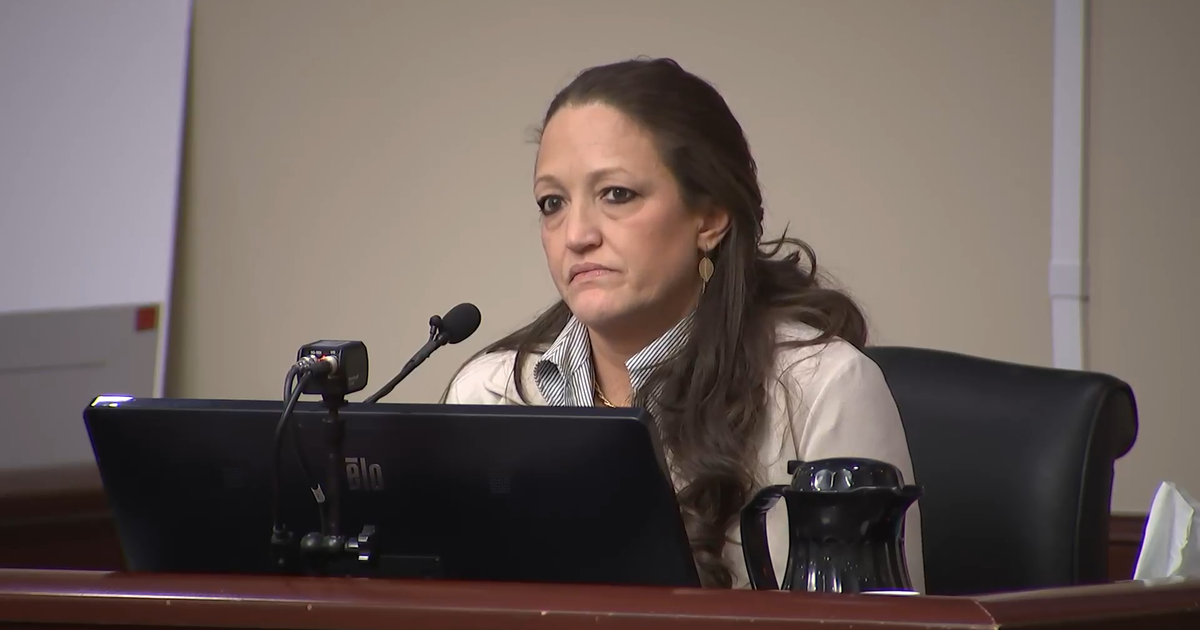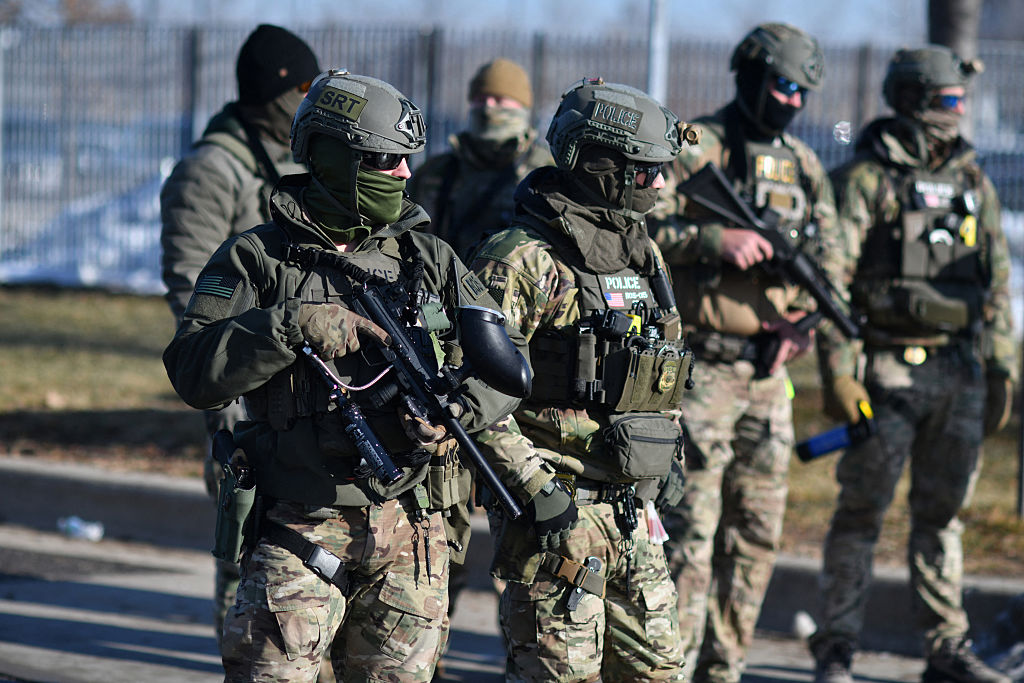Derek Chauvin Trial 3/30/21: Off-duty firefighter testifies she was "desperate" to help George Floyd
Follow the latest trial updates here. Earlier coverage is below.
Prosecutors continued laying out their case on Tuesday against Derek Chauvin, the fired Minneapolis officer charged in the death of George Floyd. Chauvin, who was seen in a disturbing video kneeling on the neck of the unarmed Black man, is charged with second-degree murder, third-degree murder and second-degree manslaughter. He has pleaded not guilty.
Tuesday afternoon, Minneapolis firefighter Genevieve Hansen, who was heard on video repeatedly asking the officers to take Floyd's pulse, testified she was "desperate" to help the man. But she said officers wouldn't allow her to provide medical assistance, leaving her feeling frustrated, helpless and "totally distressed."
"There's a man being killed, and had I had access to a call similar to that, I would have been able to provide medical attention to the best of my ability, and this human was denied that right," said Hansen, who is also an emergency medical technician.
Earlier in the day, the teen who filmed the widely-viewed cellphone video of the incident took the stand. Her testimony was broadcast via audio only due to her age. The teen, Darnella Frazier, became emotional as she described seeing Floyd "suffering" and begging for his life.
"This was a cry for help, definitely," she said.
Another teenage witness who also videotaped the encounter said she could see that Floyd was "fighting to breathe" and that "time was running out, or that it had already."
Earlier, the jury heard from a bystander trained in mixed martial arts who repeatedly yelled for for Chauvin to relieve pressure on Floyd's neck. Donald Williams II finished his testimony after a tense exchange with defense attorney Eric Nelson, who characterized Williams' comments to Chauvin as "angry."
Floyd's killing last May drew outrage and a worldwide reckoning on police reform and racial justice. Three other officers involved in the fatal arrest are charged with aiding and abetting, and will be tried jointly in August.
A key point of dispute in opening statements on Monday was how Floyd died. Prosecutors played the video of Floyd being pinned down, saying Chauvin used lethal force against a "defenseless" and handcuffed Floyd for nine minutes and 29 seconds. Prosecutor Jerry Blackwell said Floyd died of oxygen deprivation beneath the pressure of Chauvin's knee. But the defense argued Floyd died of a heart arrhythmia complicated by the fentanyl and methamphetamine he had ingested before his arrest.
Judge issues stern warning to firefighter during testimony
In his cross-examination Tuesday afternoon, defense attorney Eric Nelson again honed in on the behavior of the crowd, asking firefighter Genevieve Hansen if she would agree that her own behavior became louder, more frustrated and upset.
"More desperate," Hansen replied.
Nelson asked whether Hansen would agree that stressful situations can affect people's memory. Hansen replied "absolutely," adding that's why it's a good thing the video exists.
In a tense exchange, Nelson asked whether the bystanders was becoming more angry over time.
"I don't know if you've ever seen anybody be killed, but it's upsetting," Hansen replied.
Later, following another tense moment when Hansen complained she hadn't been allowed to finish her answer, Judge Cahill issued a stern warning to Hansen that she should answer Nelson's questions and refrain from being argumentative.
"Do not argue with the court, do not argue with counsel," Cahill said, before adjourning court for the day.
Off-duty firefighter testifies she was "desperate to help" Floyd
Genevieve Hansen, a Minneapolis firefighter and emergency medical technician who was off-duty when she came upon the scene of Floyd's fatal arrest, testified she was immediately concerned about the amount of weight Chauvin was placing on Floyd's neck and the fact that Floyd wasn't responsive.
Hansen said she thought Floyd's face looked swollen. She said she saw fluid coming from Floyd's body, and said her "mind went" to patients who sometimes relieve their bladders when they die. She said she identified herself as a firefighter and tried to convince the officers to allow her to provide medical assistance.
Hansen said she was "desperate to help" Floyd but officers wouldn't allow her.
In tears, she said the officers' refusal to let her help left her feeling frustrated, helpless and "totally distressed." She said officer Tou Thao made a comment to her along the lines of, "If you really are a Minneapolis firefighter, you would know better than to get involved."
"That's not right," Hansen testified. "That's exactly what I should have done. There was no medical assistance on the scene and I got there and I could have given medical assistance, and that's exactly what I should have done."
Had officers allowed her to help, she said she would have checked Floyd's pulse and begun chest compressions if she didn't find one. She would have called for an ambulance and also asked someone to run to a gas station to look for an AED (a portable defibrillator device). She said she would have checked Floyd's airway to make sure his breathing wasn't restricted. She also said she would have also been concerned about a spinal injury because of the pressure on Floyd's neck.
Hansen said she called 911 afterwards because she wanted to report the incident. She said she realized in the moment she could have made the call sooner.
"There's a man being killed, and had I had access to a call similar to that, I would have been able to provide medical attention to the best of my ability, and this human was denied that right," Hansen said.
Firefighter who tried to intervene in Floyd's fatal arrest takes stand
Minneapolis firefighter and EMT Genevieve Hansen, who was seen on video repeatedly asking officers to check Floyd's pulse, has been called to the stand. She was a bystander and off-duty at the time of the incident.
Before Hansen took the stand, prosecutors played a cellphone video she filmed of the scene and a 911 call she placed afterward.
"I literally just watched police officers not take a pulse and not do anything to save a man," Hansen is heard saying in the call.
Teen bystander describes "hostile" officers
Another teen bystander, a 17-year-old high school senior referred to as Kaylynn in court, has completed her testimony. She testified that she rode to Cup Foods on March 25 in a car with her friend Alyssa, who testified just prior. Kaylynn said she initially stayed in the car, where she could hear Floyd yelling that he couldn't breathe. She said she got out of the car and walked over to the crowd when she heard voices getting louder.
"It sounded serious," she said.
The teen said Floyd was no longer talking, and Chauvin appeared to be "digging his knee into his neck."
"He was putting a lot of pressure on his neck that wasn't needed," the teen said.
She said she asked why officers were still on top of Floyd, and said he was handcuffed. She said the officers didn't respond to her concerns, and never tried to help Floyd. She described the officers as "hostile," and said Chauvin shook his canister of mace at the group, making her feel scared.
Kaylynn said she didn't see Chauvin remove his knee from Floyd's neck until a paramedic arrived and made a "get up" motion. She said Floyd was "really limp" and looked "purple, like he wasn't getting enough circulation."
"I didn't know for sure if George Floyd was dead until after the fact, but I had a gut feeling," she said.
Teen bystander: "I knew that time was running out"
Prosecutor Erin Eldridge played several cellphone videos a teen witness — referred to as Alyssa in court — recorded of Floyd's fatal arrest, alongside city surveillance camera video. The teen can be heard in the video repeatedly yelling for Chauvin to get off Floyd.
At one point, the teen said, Chauvin appeared to put more pressure on Floyd's neck with his knee. She said she saw Floyd appearing to lose consciousness. She is heard in the video yelling to Chauvin that Floyd hadn't moved in over a minute.
"I knew that time was running out, or that it had already," she testified.
When Eldridge asked what she meant by that, the teen replied, "That he was going to die."
The witness said she felt it was important for her to document what was going on with the video. She said she initially considered walking away, but couldn't.
"I almost walked away at first, because it was a lot to watch," she said. "But I knew it was wrong and I couldn't just walk away, even though I couldn't do anything about it."
Under cross-examination by defense attorney Eric Nelson, the teen admitted that she was angry over what was happening. When asked whether others at the scene were also angry, she said, "I would assume so."
On re-direct questioning by Eldridge, the teen said she hadn't returned to the scene since Floyd's death because "I don't want to be reminded."
Teen bystander says Floyd was "fighting to breathe"
Court resumed after a lunch break with another teen bystander witness whose testimony is being broadcast by audio only. Now 18, the witness was 17 years old when she drove her grandfather's car to Cup Foods with a friend last May 25.
There, she said she saw officers restraining Floyd on the ground, Chauvin with his knee on Floyd's neck. She said there were already a few bystanders asking officers to let Floyd up and telling Floyd to stay calm.
The teen said Floyd was in distress, struggling and "fighting to breathe." She said she knew initially something was wrong, so she started recording with her friend's phone.
"I heard him say he couldn't breathe, and that his stomach hurt and that he wanted his mom," the teen said.
The teen said she saw Floyd's eyes rolling back, and she believed if he continued to be restrained he wouldn't live. The teen paused, apparently crying, and a prosecutor asked her why this was difficult for her to talk about. The teen said she felt like she was "failing" to do anything.
"It was difficult because it felt like there wasn't really anything I could do as a bystander," she said.
Protester chains herself to fence outside courthouse
Protester Kaia Hirt of the group Good Trouble for Justice has chained herself to fencing surrounding the Hennepin County Government Center, where Derek Chauvin is being tried, reports CBS station WCCO.
"We won't see justice until the people who are unaffected are as enraged about injustice as the people who are affected," Hirt said.
Teen who filmed video finishes emotional testimony
The teen who took the widely-viewed cellphone video of George Floyd's fatal arrest concluded her emotional testimony Tuesday by saying that Floyd reminded her of her own father, brothers, cousins and uncles, "because they are all Black."
"I look at that and I look at how that could have been one of them," Darnella Frazier said.
Crying, the 18-year-old said that she's stayed up some nights apologizing to Floyd "for not doing more, and not physically interacting, not saving his life."
"But it's not what I should have done, it's what he should have done," Frazier said, apparently referring to Chauvin.
Under cross-examination by defense attorney Eric Nelson, Frazier said filming the video had changed her life. She said she was surprised when it went viral.
Nelson again honed in on the crowd of bystanders, asking Frazier if she would agree that they became louder over time. Frazier agreed the crowd became louder, "more so as he was becoming more unresponsive."
Responding to re-direct questions by prosecutor Jerry Blackwell, Frazier said she didn't see anything to indicate that Chauvin was afraid of her or the growing crowd.
"I have social anxiety, so it's really out of my comfort zone to really be that 'out' person. But you know, when I seen what I saw, at moments I was loud," Frazier said.
After Frazier's testimony concluded, her 9-year-old cousin, who was with her that day, took the stand, saying in a soft voice that seeing the incident made her "sad and kind of mad."
"Because I felt like he was stopping his breathing, and it's kind of like, hurting him," the girl said.
Teen who filmed video: Chauvin had "this cold look, heartless"
Frazier testified Tuesday that she didn't see Chauvin let up pressure on Floyd's neck until a paramedic told him to. Before paramedics arrived, as the crowd cried out for Chauvin to ease up, Frazier said Chauvin appeared to be "kneeling in even harder."
"He just stared at us, looked at us — he had like this cold look, heartless," Frazier said. "He didn't care, it seemed as if he didn't care what we were saying, it didn't change anything he was doing."
Frazier testified that at one point Chauvin and officer Tou Thao put their hands on their mace, making her feel threatened.
"I felt like I was in danger when he did that," Frazier testified. "It rubbed me the wrong way. I didn't understand why they would do that, what we did ... to make them do that."
Teen who filmed video: "This was a cry for help"
Frazier is being questioned by Blackwell. Frazier's voice cracked with emotion as she spoke, and at certain points she sounded as if she were crying.
Blackwell played surveillance footage from May 25 that showed Frazier walking towards Cup Foods with her young cousin, past the scene where Floyd was being restrained by officers. Frazier said she wanted her cousin to go into the store because she didn't want the girl to see what was happening: "A man terrified, scared, begging for his life."
Frazier said she didn't go into the store with her cousin but instead went back because she saw Chauvin kneeling on Floyd. "It wasn't right," she said.
She said he took out her cellphone and started recording to capture what she was seeing.
"I heard George Floyd saying, 'I cant breathe, please, get off me, I can't breathe,'" Frazier said. "He cried for his mom. He was in pain. It seemed like he knew it was over for him. He was terrified. He was suffering. This was a cry for help, definitely."
A judge warned her that she can testify to what she witnessed, but isn't allowed to make inferences about Floyd.
Teen who filmed video of George Floyd's fatal arrest takes stand
The teen who filmed the widely-viewed cellphone video of George Floyd's death has taken the stand. Only audio of her testimony is being broadcast.
Bystander denies his comments to Chauvin were "angry"
Under questioning from defense attorney Eric Nelson, bystander Donald Williams II said he has received training in chokeholds through his mixed martial arts background, but had no police academy training. Williams also admitted that he didn't know what happened before he came upon the scene where Chauvin and the other officers were restraining Floyd, including that an ambulance had been called minutes before.
Nelson also asked whether Williams had dealt with a crowd that was upset during his experience as a security guard. Williams said he had, and that crowds that are angry are harder to deal with.
In a tense exchange, Nelson asked Williams whether he used names to refer to Chauvin during the fatal arrest, including "bogus," "bum," "tough guy" and a series of expletives. Williams agreed he made the statements, "if that's what you heard on the video." But he pushed back when Nelson asked whether the terms grew more and more angry.
"They grew more and more pleading for life," Williams said. He later said, "You can't paint me out to be angry."
Bystander: "I believe I witnessed a murder"
Williams, who yelled repeatedly for Chauvin to remove his knee from Floyd's neck, is back on the stand to continue his testimony. Williams said that he "called the police on the police" after witnessing the fatal arrest. When prosecutor Matthew Frank asked why he made the 911 call, Williams said, "I believe I witnessed a murder."
Frank then played the 911 call in court. Williams is heard saying, "He pretty much just killed this guy that wasn't resisting arrest."
Teen who filmed viral video may testify via audio, judge rules
After hearing a motion from prosecutors Tuesday morning, Judge Peter Cahill has ruled that the teen who filmed the widely viewed video of George Floyd's fatal arrest may testify via audio with no video. The teen will say and spell her name off of the audio recording and will be referred to only by her initials or first name in court, Cahill ruled. The witness was 17 at the time of Floyd's death and has since turned 18, but Cahill cited her young age and the massive publicity around the case.
The ruling also applies to three other bystander witnesses, two of whom are still minors and one of whom has since turned 18. Prosecutors had argued to limit the broadcasting of their testimony. A lawyer for a media coalition argued it should be public, especially the teen who filmed the video, saying it was key to the case. The teen's name has been widely published in the media, the lawyer argued.
Recap of Day 1 testimony
Protesters: "It all just came back"
After court proceedings Monday, protesters gathered at the Hennepin County Government Center and marched through the streets of downtown Minneapolis. Demonstrators told CBS station WCCO they were calling for Chauvin to be convicted and to hold police accountable across the country. The march was organized by a coalition of 12 community groups, the station reports.
Some demonstrators fastened padlocks to the fencing around the heavily secured government center, where Chauvin is being tried, each padlock bearing a name of a person killed by police. The trial has been emotional for many, especially when prosecutors played the video of George Floyd's death, protester Nikia Clark told the station.
"You still remember, but those emotions that we felt last year when it first happened, it was like it all just came back," Clark said.
Demonstrators also placed a casket in the street with a written message: "For all who weren't filmed, won't get a trial, haven't received justice, whose names weren't said, cases that were swept under the rug, who didn't get a national uprising and whose cities didn't burn from grief, you deserve it all."
The charges
In order to convict Chauvin of second-degree murder, prosecutors will need to prove beyond a reasonable doubt that Chauvin caused Floyd's death while committing or attempting to commit a related felony, in this case third-degree assault. To convict the former officer of third-degree murder, prosecutors must convince the jury that Chauvin caused Floyd's death during an act that was "eminently dangerous to others and evincing a depraved mind, without regard for human life."
The charge was initially dropped by Cahill, but was re-instated earlier this month after an appeals court handed a win to prosecutors.
To convict Chauvin of second-degree manslaughter, prosecutors will need to prove beyond a reasonable doubt that Chauvin caused Floyd's death by "culpable negligence," meaning he created unreasonable risk and consciously took a chance of causing death or serious harm.
Prosecutors do not need to prove that Chauvin intended to cause Floyd's death. Since police officers are authorized to use force, prosecutors must prove that the force Chauvin used against Floyd was unlawful.
In Minnesota, second-degree murder carries a maximum sentence of 40 years in prison. Third-degree murder is punishable by up to 25 years. Second-degree manslaughter carries a maximum prison term of 10 years.
Key players
Hennepin County District Judge Peter Cahill is presiding over the trial.
The office of Minnesota Attorney General Keith Ellison is handling the prosecution against Chauvin, and Chauvin's defense lawyer is Eric Nelson.
Though 15 jurors were selected, one was dismissed at the beginning of the proceedings, leaving 12 jurors and two alternates to hear the case. The nine women and six men range in age from 20s to 60s. Nine are White, four are Black and two identify as multiracial. The identities of the jurors are being kept secret, and all have said they can render an impartial verdict despite the massive amount of publicity the case has received.
Under COVID-19 protocols, the courtroom will have space for a television technician to operate the broadcast, the judge, four lawyers from the prosecution and four from the defense, jurors and alternate jurors, two members of the media, one member of Derek Chauvin's family and one member of George Floyd's family. The judge has said different family members may rotate using the seat, but will not be allowed in the courtroom at the same time.
Lawyers Ben Crump and Antonio Romanucci said in a statement the ruling to allow only one family member in court disappointed Floyd's family members, "many of whom intended to be in the courtroom to witness this trial."
"The family is looking forward to the start of the trial as a critical milestone on the path to justice and a step toward closure in this dark chapter of their lives," the statement said.
